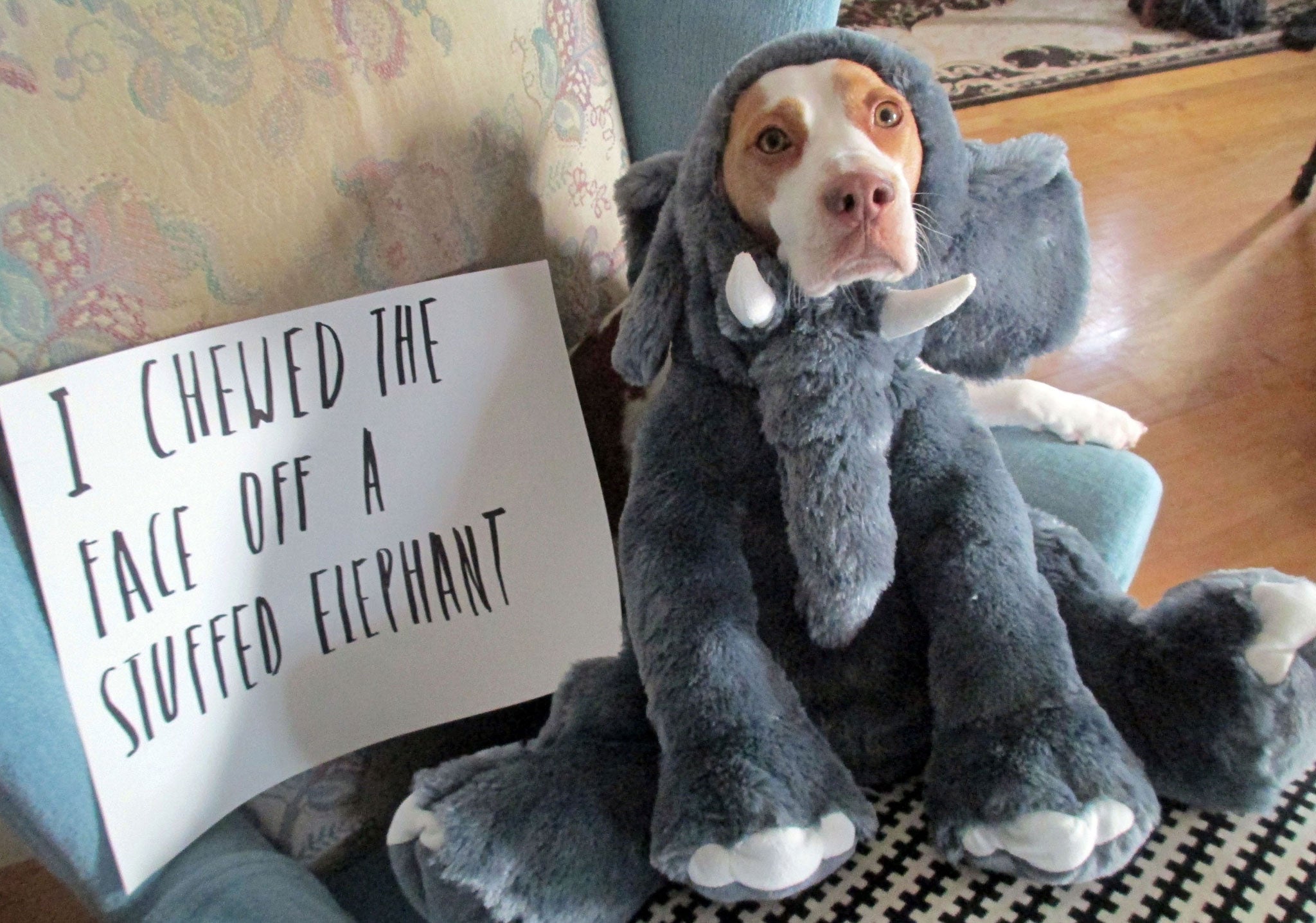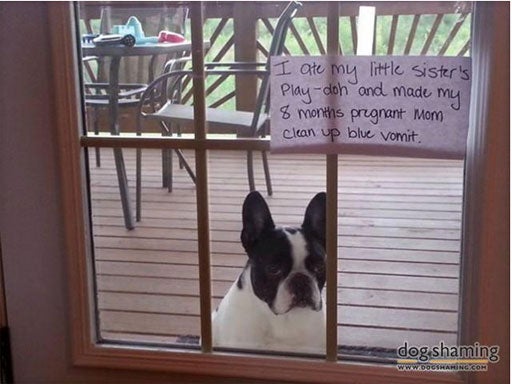Ignore the puppy eyes - dogs feel no shame
The 'guilty look' dogs give when they have done something wrong is simply a reaction to their owner's behaviour when they scold them

Your support helps us to tell the story
From reproductive rights to climate change to Big Tech, The Independent is on the ground when the story is developing. Whether it's investigating the financials of Elon Musk's pro-Trump PAC or producing our latest documentary, 'The A Word', which shines a light on the American women fighting for reproductive rights, we know how important it is to parse out the facts from the messaging.
At such a critical moment in US history, we need reporters on the ground. Your donation allows us to keep sending journalists to speak to both sides of the story.
The Independent is trusted by Americans across the entire political spectrum. And unlike many other quality news outlets, we choose not to lock Americans out of our reporting and analysis with paywalls. We believe quality journalism should be available to everyone, paid for by those who can afford it.
Your support makes all the difference.Dog owners are being advised to ignore the puppy eyes, the tail-between-legs and the apparent guilt the animals appear to show when they have done something wrong – canines do not feel shame, according to animal behaviour experts.
Instead of being an expression of guilt, the ashamed look they give is actually a reaction to their owner's behaviour when they scold them. Dogs do not actually understand what the rant is about, an animal behaviour expert has found.
The best way to deal with this "revelation"? "Just get over it and remind yourself not to put temptation in the way next time," according to Dr Bonnie Beaver, a professor at Texas A&M University's College of Veterinary Medicine.
However, dogs can learn to distinguish between what their owners consider good and bad behaviour if they are punished immediately after doing wrong, Dr Beaver said.
"The farther it gets from that, the less connection is made with the behaviour," she added. "Humans have a natural desire to know what an animal is thinking, and yet we are limited to reading body language and measuring physiological reactions."
One of the first scientific studies on the ashamed look given by dogs was conducted by Alexandra Horowitz, an associate professor of psychology at Barnard College in New York City.

In a study published in Inside of a Dog: What Dogs See, Smell, and Know, she used 14 dogs, videotaping them in a series of trials and studying how they reacted when an owner left the room after telling them not to eat a treat.
Some of the dogs ate the treats before their owners returned and some did not.
"I found that the 'look' appeared most often when owners scolded their dogs, regardless of whether the dog had disobeyed or did something for which they might or should feel guilty. It wasn't 'guilt' but a reaction to the owner that prompted the look," Ms Horowitz said.
"I am not saying that dogs might not feel guilt, just that the 'guilty look' is not an indication of it," she added.
But scientific evidence has done little to quell the success of so-called 'dog-shaming' sites. Pascale Lemire, the creator of dogshaming.com has seen the website receive more than 58 million page views since 2012.
Its popularity led Ms Lemire to publish the book Dog Shaming, which entered The New York Times bestseller list in January.
"I don't think dogs actually feel shame," Ms Lemire told The Associated Press. "I think they know how to placate us with this sad puppy-dog look that makes us think they're ashamed of what they've done.
"My guess is that their thinking is: 'Oh man, my owner is super-mad about something, but I don't know what, but he seems to calm down when I give him the sad face, so let's try that again.'
"People come for a laugh and camaraderie," Ms Lemire added. "They see that their dog isn't the only one who does awful things. People don't shame their dogs out of anger, they do it out of love."
Additional reporting by The Associated Press
Join our commenting forum
Join thought-provoking conversations, follow other Independent readers and see their replies
Comments